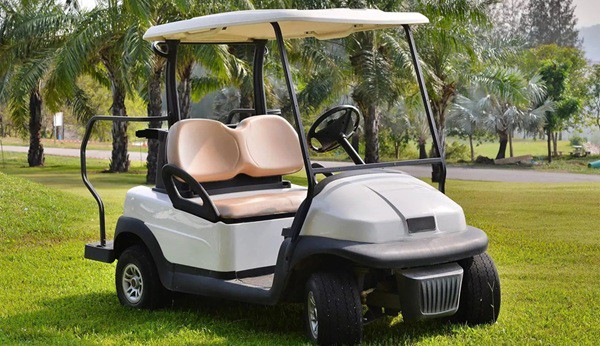What Makes the Best Golf Cart Batteries? A Manufacturer’s Guide to Superior Lithium Power
When it comes to powering golf carts, not all batteries are created equal. As a leading OEM manufacturer specializing in lithium batteries for golf carts, we’ve engineered solutions for top-tier brands worldwide. In this guide, we’ll break down the key features of the best golf cart batteries and explain why lithium technology is revolutionizing the industry.
Why Lithium Batteries Dominate Modern Golf Carts
The shift from lead-acid to lithium batteries isn’t just a trend—it’s a game-changer. Here’s why:
-
Weight Reduction: Lithium batteries weigh 40-60% less than traditional lead-acid packs (e.g., 48V/100Ah lithium = 55 lbs vs. 300+ lbs for lead-acid). This directly improves cart speed, hill-climbing ability, and reduces tire wear.
-
Longer Lifespan: Premium lithium batteries deliver 8-10 years of service (2,000+ cycles) versus 3-5 years for lead-acid.
-
Zero Maintenance: No water refills, terminal cleaning, or equalization charges.
But not all lithium batteries meet the “best golf cart batteries” standard. Let’s dive into what truly matters.
5 Non-Negotiable Features of Top-Tier Golf Cart Lithium Batteries
**1. Battery Chemistry: LiFePO4 vs. NCM
The core of performance lies in the cells:
-
LiFePO4 (Lithium Iron Phosphate):
-
Safety First: Stable thermal performance (no thermal runaway risk) even in 140°F+ climates.
-
Longevity: 5,000+ cycles at 80% depth of discharge (DoD).
-
Ideal For: Golf courses in hot regions like Arizona or Florida.
-
-
NCM (Nickel Cobalt Manganese):
-
Energy Density: 30% higher than LiFePO4, perfect for lightweight designs.
-
Cold Weather Master: Operates smoothly at -22°F (-30°C).
-
Best For: Carts in colder climates like Minnesota or Canada.
-
Pro Tip: Always request cell specification sheets. Top manufacturers use Grade A cells from CATL, EVE, or BYD.
**2. Smart Battery Management System (BMS)
A robust BMS is the brain of your battery. The best golf cart batteries include:
-
Active Balancing: Maintains ≤0.03V difference between cells (prevents premature aging).
-
Multi-Layer Protection: Overcharge/discharge, short-circuit, and temperature cutoffs (tested to UL 2580 standards).
-
Real-Time Diagnostics: Bluetooth/WiFi connectivity for SOC (State of Charge), SOH (State of Health), and error code monitoring via mobile apps.
Red Flag: Avoid batteries with “dumb” BMS—cost-saving here risks catastrophic failures.
**3. Customized Fit and Compatibility
The best golf cart batteries aren’t one-size-fits-all. Key engineering considerations:
-
Voltage Matching: 36V, 48V, or 72V systems must align with the cart’s motor controller.
-
Drop-in-Ready Designs:
-
Exact dimensions to replace lead-acid trays (e.g., 10.5″ L × 7.1″ W × 11.2″ H per 12V module).
-
Pre-wired series/parallel configurations for hassle-free upgrades.
-
-
Terminal Options: Dual terminals (SAE and M8 bolts) to match existing cables.
Case Study: A Tennessee resort upgraded 50 carts to our 48V/105Ah LiFePO4 packs, achieving 20% faster charging and eliminating midday battery swaps.
**4. Rugged Build Quality for Demanding Conditions
Golf carts face vibrations, moisture, and temperature swings. Premium batteries feature:
-
Military-Grade Enclosures: Aluminum alloy cases with IP67 rating (submersion protection up to 3.3 feet for 30 minutes).
-
Vibration Resistance: Passes MIL-STD-810G testing (simulates 10+ years of rough terrain).
-
Thermal Management: Built-in heating pads (-4°F to 140°F operational range) for all-season reliability.
How to Choose Your Lithium Battery Partner
As a manufacturer, we advise brands to audit potential suppliers on:
-
Production Transparency:
-
Factory tours (physical or virtual) to inspect cell sorting and welding processes.
-
Batch traceability (QR codes for cell origin and test logs).
-
-
Testing Protocols:
-
Cycle testing reports (e.g., 80% capacity after 2,000 cycles).
-
High-rate discharge tests (simulating steep hill climbs).
-
-
Customization Capabilities:
-
Branded BMS interfaces.
-
OEM packaging for private labeling.
-
The Hidden Costs of Cheap Lithium Batteries
Beware of “too-good-to-be-true” deals:
-
Cell Quality: Discount batteries often use recycled or B-grade cells with 30% lower lifespan.
-
BMS Limitations: Basic systems lack temperature sensors, risking winter damage.
-
No Local Support: Offshore suppliers may ignore warranty claims.
ROI Example:
| Battery Type | Upfront Cost | Lifespan | Total Cost Over 10 Years |
|---|---|---|---|
| Budget Lithium | $2,200 | 5 years | $4,400 (2 replacements) |
| Premium Lithium | $3,800 | 10+ years | $3,800 |
| Lead-Acid | $1,500 | 3 years | $5,000+ (3+ replacements) |
Future-Proofing Your Golf Cart Fleet
Emerging trends to watch:
-
AI-Optimized Charging: Algorithms that adapt to usage patterns, extending cycle life by 15%.
-
Second-Life Applications: Repurposing retired cart batteries for solar storage (adding residual value).
-
Fast-Charge Networks: 30-minute charging stations for commercial fleets (requires 2C+ charge rates).
Conclusion: The Best Golf Cart Batteries Start With Engineering Integrity
Superior lithium batteries aren’t just products—they’re partnerships. At [Your Company Name], we combine Grade A cells, aerospace-grade BMS, and rigorous testing to power the world’s most reliable golf carts. Whether you’re a brand launching a new line or upgrading existing models, our OEM solutions ensure your batteries earn the “best in class” reputation.


